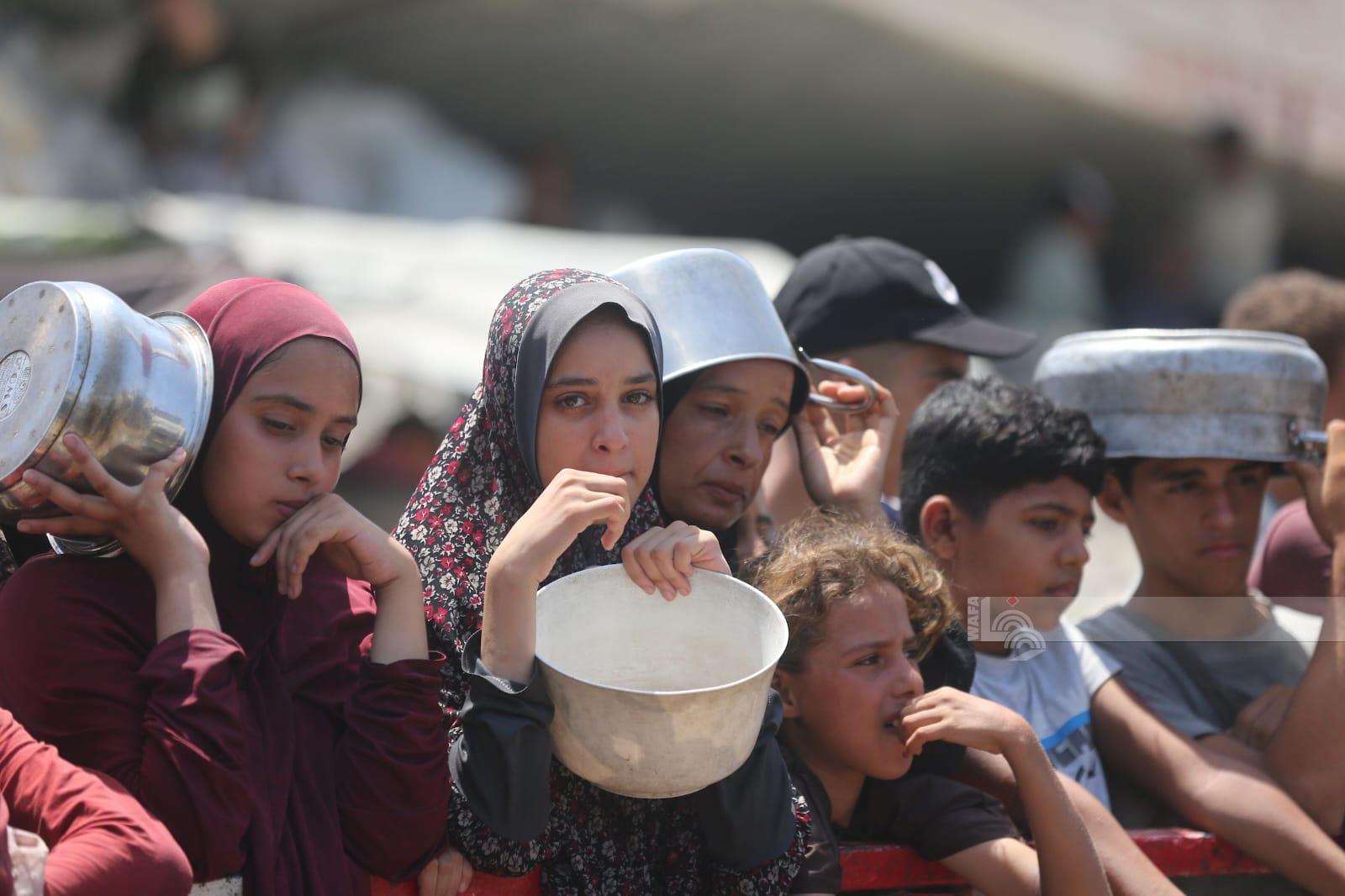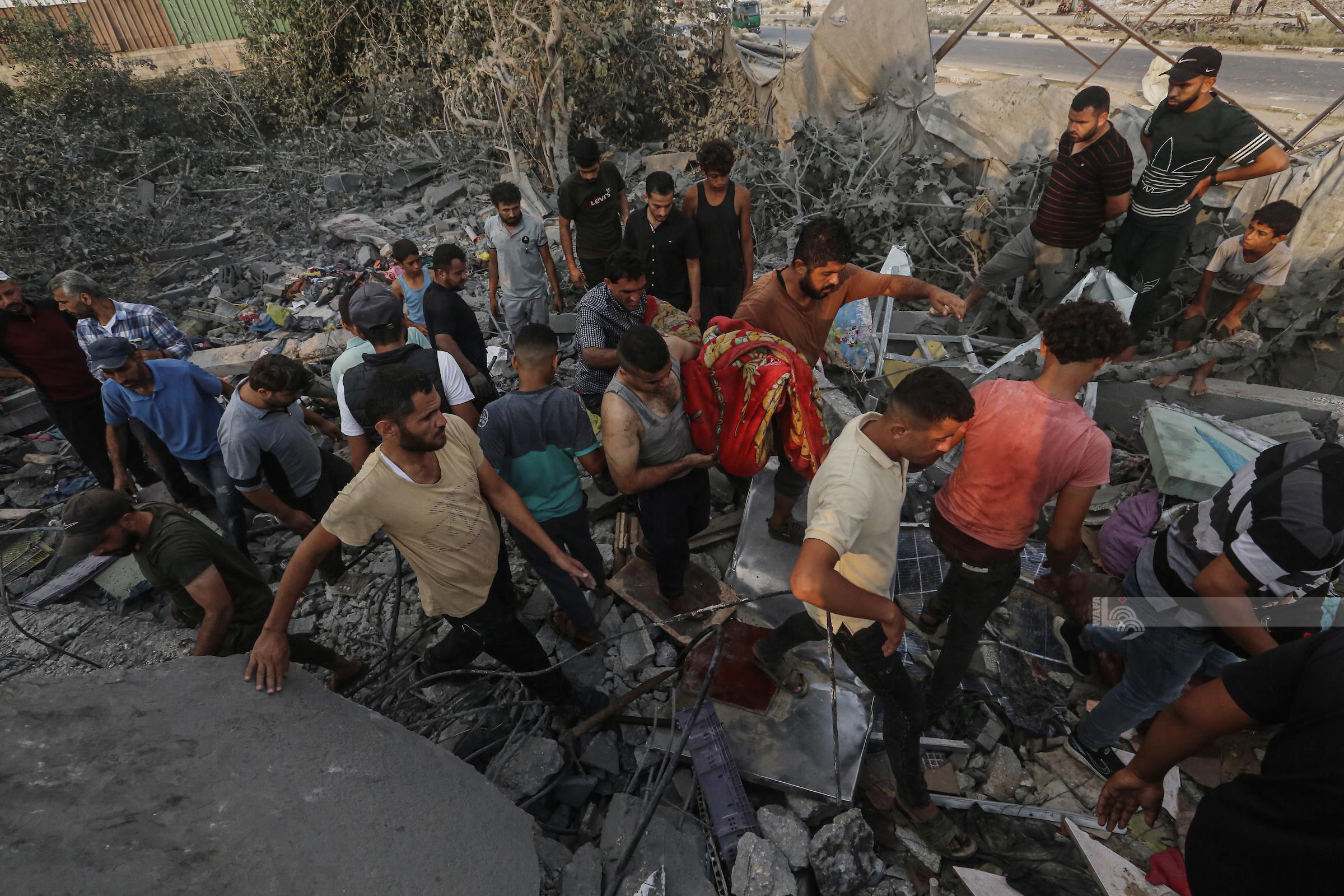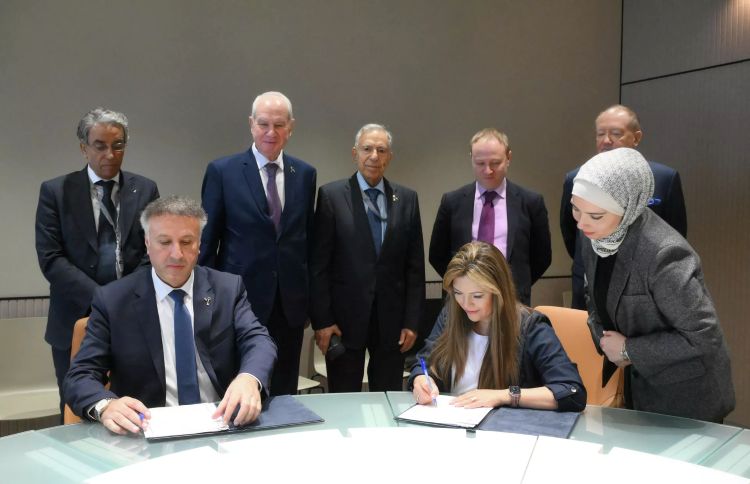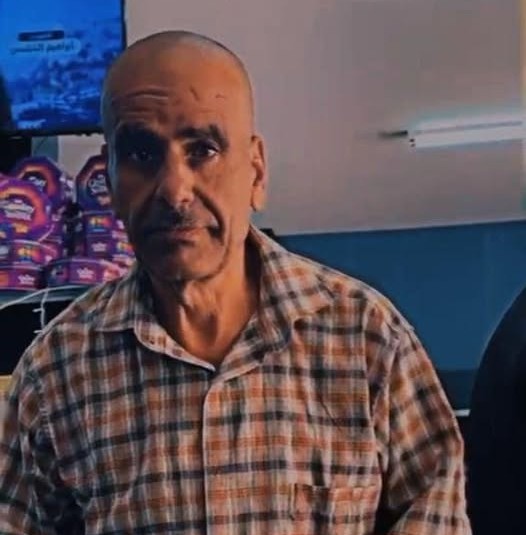NEW YORK, August 22, 2025 (WAFA) - A new Integrated Food Security Phase Classification (IPC) analysis released today affirmed that famine (IPC Phase 5) is currently occurring in Gaza Governorate and projected to expand to Deir al-Balah and Khan Yunis governorates by the end of September.
IPC analysis said that after 22 months of relentless conflict, over half a million people in the Gaza Strip are facing catastrophic conditions characterized by starvation, destitution and death.
Another 1.07 million people (54 percent) are in Emergency (IPC Phase 4), and 396,000 people (20 percent) are in Crisis (IPC Phase 3), it said.
The Integrated Food Security Phase Classification (IPC) is a global initiative that includes United Nations agencies, regional partners, and humanitarian organizations. Food insecurity is classified into five phases, with famine representing the most severe, ranked at Phase Five.
IPC said, “Between mid-August and the end of September 2025, conditions are expected to further worsen with Famine projected to expand to Deir al-Balah and Khan Younis.”
Nearly a third of the population (641,000 people) are expected to face catastrophic conditions (IPC Phase 5), while those in Emergency (IPC Phase 4) will likely rise to 1.14 million (58 percent), added IPC.
The Food and Agriculture Organization of the United Nations (FAO), UNICEF, the United Nations World Food Programme (WFP) and the World Health Organization (WHO) have collectively and consistently highlighted the extreme urgency for an immediate and full-scale humanitarian response given the escalating hunger-related deaths, rapidly worsening levels of acute malnutrition and plummeting levels of food consumption, with hundreds of thousands of people going days without anything to eat.
FAO, UNICEF, WFP and WHO reiterated, in a joint news release, the call for an immediate ceasefire and unhindered humanitarian access to curb deaths from hunger and malnutrition.
The agencies reinforced that famine must be stopped at all costs. “An immediate ceasefire and end to the conflict is critical to allow an unimpeded, large-scale humanitarian response that can save lives.”
The agencies also expressed grave concern about the threat of an intensified military offensive in Gaza City and any escalation in the conflict, as it would have further devastating consequences for civilians, where famine conditions already exist. “Many people – especially sick and malnourished children, older people and people with disabilities – may be unable to evacuate.”
“Classifying famine means that the most extreme category is triggered when three critical thresholds – extreme food deprivation, acute malnutrition and starvation-related deaths – have been breached. The latest analysis now affirms on the basis of reasonable evidence that these criteria have been met,” said the joint release.
To enable lifesaving humanitarian operations, the U.N. agencies emphasized the importance of an immediate and sustained ceasefire to stop the killing, allow for the safe release of hostages and permit unimpeded access for a mass influx of assistance to reach people across Gaza.
They stressed the urgent need for greater amounts of food aid, along with dramatically improved delivery, distribution and accessibility, as well as shelter, fuel, cooking gas and food production inputs.
They emphasized that it is critical to support the rehabilitation of the health system, maintain and revive essential health services, including primary health care, and ensure sustained delivery of health supplies into and across Gaza. “The restoration of commercial flows at scale, market systems, essential services, and local food production is also vital if the worst outcomes of the famine are to be avoided.”
“People in Gaza have exhausted every possible means of survival. Hunger and malnutrition are claiming lives every day, and the destruction of cropland, livestock, greenhouses, fishery and food production systems has made the situation even more dire,” said FAO Director-General QU Dongyu. “Our priority must now be safe and sustained access for large-scale food assistance. Access to food is not a privilege – it is a basic human right.”
“Famine warnings have been clear for months,” said Cindy McCain, WFP Executive Director. “What’s urgently needed now is a surge of aid, safer conditions, and proven distribution systems to reach those most in need – wherever they are. Full humanitarian access and a ceasefire now are critical to save lives.”
“Famine is now a grim reality for children in Gaza Governorate, and a looming threat in Deir al-Balah and Khan Younis,” said UNICEF Executive Director Catherine Russell. “As we have repeatedly warned, the signs were unmistakable: children with wasted bodies, too weak to cry or eat; babies dying from hunger and preventable disease; parents arriving at clinics with nothing left to feed their children. There is no time to lose. Without an immediate ceasefire and full humanitarian access, famine will spread, and more children will die. Children on the brink of starvation need the special therapeutic feeding that UNICEF provides.”
“A ceasefire is an absolute and moral imperative now,” said WHO Director-General Dr Tedros Adhanom Ghebreyesus. “The world has waited too long, watching tragic and unnecessary deaths mount from this man-made famine. Widespread malnutrition means that even common and usually mild diseases like diarrhoea are becoming fatal, especially for children. The health system, run by hungry and exhausted health workers, cannot cope. Gaza must be urgently supplied with food and medicines to save lives and begin the process of reversing malnutrition. Hospitals must be protected so that they can continue treating patients. Aid blockages must end, and peace must be restored, so that healing can begin.”
T.R.












